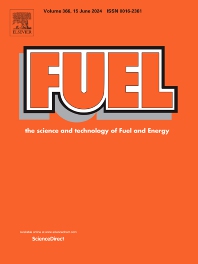Journals in Natural gas
Journals in Natural gas
Gas Science and Engineering
Gas Science and Engineering aims to bridge the gap between scientific understanding and engineering practice in the study of natural and industrial gases. The journal publishes high-quality research that is accessible to both scientists and engineers working across Earth Sciences, and Energy Research.The journal’s mission is to promote environmentally sustainable exploration, processing, and utilization of diverse gas resources—including methane and other gaseous hydrocarbons, hydrogen, helium and other rare gases, CO₂, SO2, and other acid gases, as well as ammonia, NOx and other industrial gases—to support global energy transition and net-zero carbon goals.Its scope includes, but is not limited to:Origin, migration, and accumulation of natural gases Gas resource development, production, and processing technologiesSubsurfa... gas storage, geoengineering, and reservoir characterizationCarb... capture, utilization, and storageIndustrial gas production and controlGas separation methods and material developmentApplicati... of artificial intelligence, data analytics, analytical and numerical methods in gas science and engineeringGas Science and Engineering welcomes original research articles, review papers, short communications, and letters to the editor. Review papers are typically invited.- ISSN: 2949-9089

Gas Science and Engineering
Gas Science and Engineering aims to bridge the gap between scientific understanding and engineering practice in the study of natural and industrial gases. The journal publishes high-quality research that is accessible to both scientists and engineers working across Earth Sciences, and Energy Research.The journal’s mission is to promote environmentally sustainable exploration, processing, and utilization of diverse gas resources—including methane and other gaseous hydrocarbons, hydrogen, helium and other rare gases, CO₂, SO2, and other acid gases, as well as ammonia, NOx and other industrial gases—to support global energy transition and net-zero carbon goals.Its scope includes, but is not limited to:Origin, migration, and accumulation of natural gases Gas resource development, production, and processing technologiesSubsurfa... gas storage, geoengineering, and reservoir characterizationCarb... capture, utilization, and storageIndustrial gas production and controlGas separation methods and material developmentApplicati... of artificial intelligence, data analytics, analytical and numerical methods in gas science and engineeringGas Science and Engineering welcomes original research articles, review papers, short communications, and letters to the editor. Review papers are typically invited.- ISSN: 1875-5100

Fuel
The Science and Technology of Fuel and EnergyResearch into energy sources remains a key issue. Over the last 100 years, Fuel has been the leading source of primary research work in fuel science. The scope is broad and includes many topics of increasing interest such as environmental aspects and pollution.A wide variety of fuels are covered:Fuel cellsCokeHydrogen generation and useOils and gasesSynthetic fuels (including Dimethyl ether (DME), Methanol etc)BiofuelsAdvances in catalysis in sustainable fuelsNatural gasAdvances in materials for energyPetroleumSusta... new fuels - road, aviation and marineControl of emissions from new fuelsWaste-derived fuels (WDF)Refuse-derived fuels (RDF)Carbon with applications to fuel energyCarbon Capture, Utilisation and Storage - Science and TechnologiesAuthors are also welcome to submit to Fuel 's gold open access companion title, Fuel Communications.- ISSN: 0016-2361
